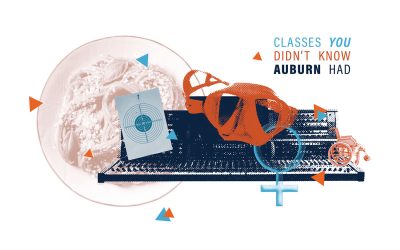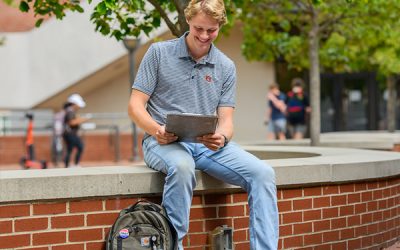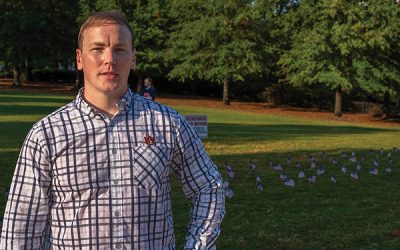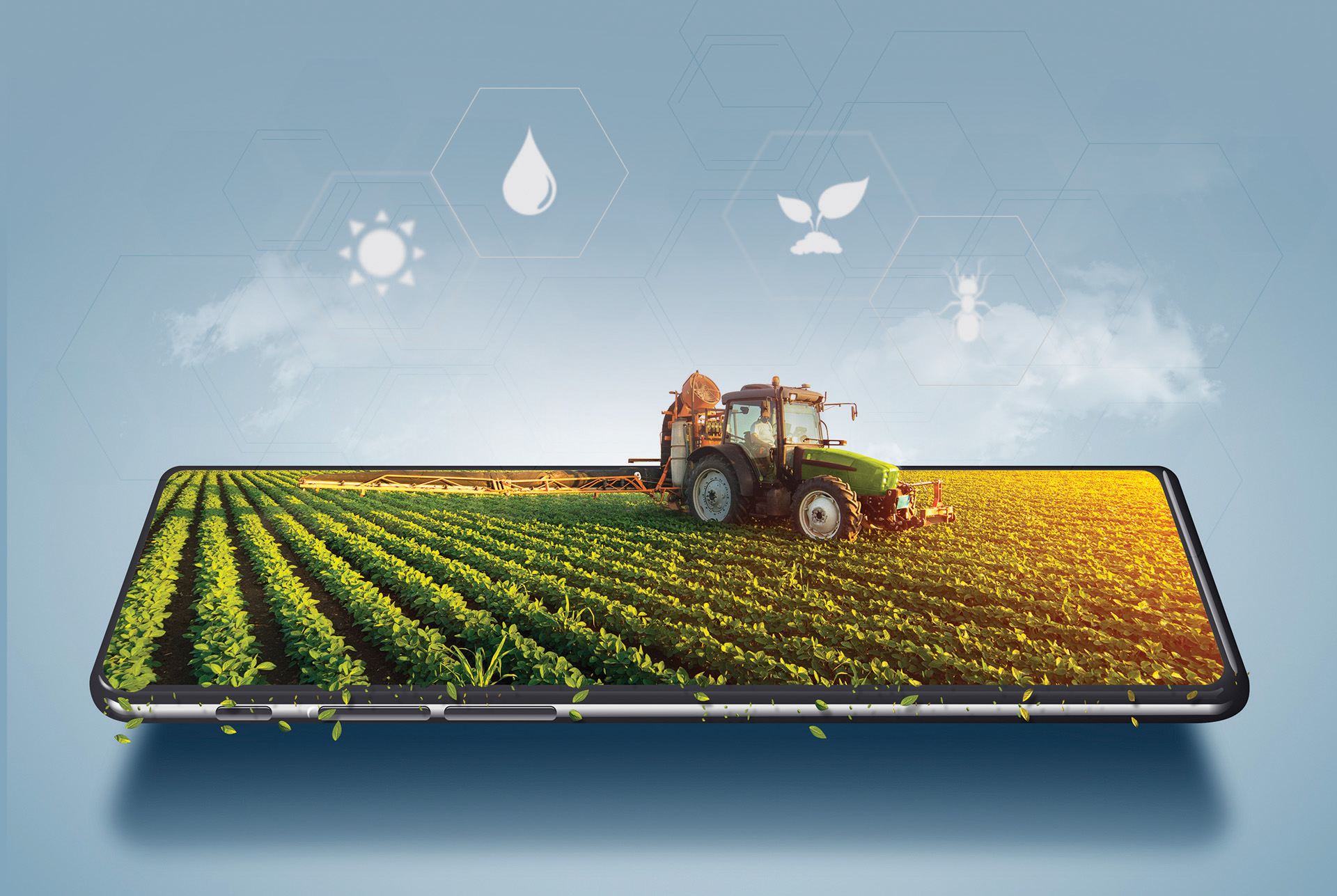
You might wonder, and wouldn’t be the first to wonder, if Hari Narayanan, one of Auburn University’s foremost authorities on artificial intelligence (AI), tosses and turns in his bed at night, worrying if tomorrow is the day that machines will go all “2001: A Space Odyssey” on us and start to think for themselves.
The short answer is no, although there are certainly aspects of AI that need to be reined in.
That’s part of what Narayanan, Watson professor and chair of the Department of Computer Science and Software, and Gerry Dozier, McCrary eminent chair professor in the department, are studying as administrative lead and technical lead, respectively, of AI@AU, the university’s $2 million AI effort that started last year.
Funded by the provost’s office with support from the Samuel Ginn College of Engineering, AI@AU aims to position Auburn as a national leader when it comes to dealing with AI.
The initiative has five goals, including gathering a multidisciplinary team from across the university to expand AI research and education, building a tech infrastructure for this research and education, exploring university-wide AI innovations, encouraging AI-related activities and building a foundation to respond to AI research and education opportunities from outside the university.
Bottom line, AI@AU strives to be an umbrella that encompasses all things AI at Auburn. It’s off to a good start, with more than 115 faculty members from Auburn’s 12 colleges participating.
AI is definitely having a moment now, but Narayanan and his cohorts have seen it coming for a while.
“We’ve been interested in AI for quite a long time in the Department of Computer Science and Software Engineering, and we’ve been building up faculty trained in AI since I became chair in 2016,” he said. “It’s all over the news now, with ChatGPT and the hype and worries that this is going to end civilization. It’s not.”
ChatGPT, which can generate requested text in a matter of seconds (“Write a 500-word script in the style of ‘Seinfeld’ about Auburn’s win over Alabama”), is the star of the moment, but Auburn faculty and students have been working with AI for years, whether they know it or not, Narayanan says.
“It’s not all that sudden,” he said about AI seeping into society. “If you think about it, people with an iPhone have Siri, and Google started using AI to improve its search capability years ago. It has jumped into everyone’s consciousness mainly because of ChatGPT, but it has been happening for quite some time.”
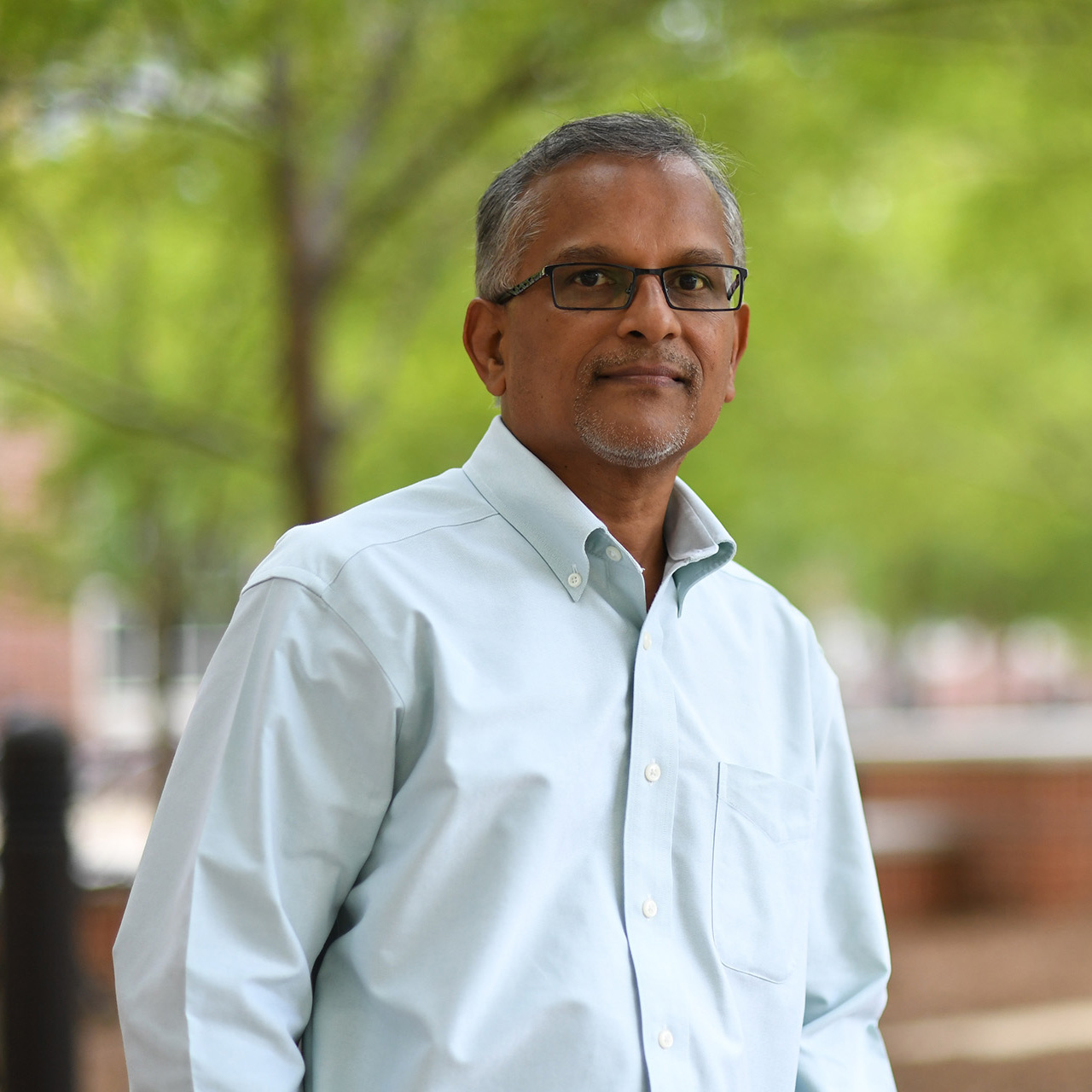
“It’s not all that sudden. If you think about it, people with an iPhone have Siri, and Google started using AI to improve its search capability years ago.”
– Hari Narayanan
ChatGPT in the Classroom
Already at Auburn and elsewhere, discussions are determining how and when ChatGPT can be used effectively both inside and outside the classroom.
In late 2022 Asim Ali, executive director of Auburn’s Biggio Center for the Enhancement of Teaching and Learning, began seeing ChatGPT as a challenge in his classes. Instead of finding ways to deter students from using it, he recognized that, like other study aids they might use online and elsewhere, they needed to learn how to use it properly.
“This is a transformative technology that will change the way that our students will work in their future careers and jobs, so I don’t want them to leave my class without knowing about it,” said Ali, whose assignments now have using ChatGPT built into them.
That led to Ali leading a team, including Biggio Center Associate Director for Educational Development Lindsay Doukopoulos and Auburn Online Associate Director for Learning Experience Design Shawndra Bowers to develop an eight-module self-directed course called “Teaching With AI.”
“Often the initial reaction to this technology is ‘My students are going to use this, so how do I catch them?’” Ali said. “What we want to do is change that mindset to ‘My students are already using this, so how do I partner with them to help them better understand the appropriate uses of this technology and where it may or may not be the best for them to use it?’”
About 650 people have signed up for the course at Auburn and it has been adopted by the SEC Artificial Intelligence Consortium, making it available to all SEC schools. Auburn is also licensing the class to other schools around the country. “It’s kind of one of a kind and really the only one in the country,” Ali said of the class. “We have other institutions calling this the gold standard.”
“Across the university, we have folks working on foundational AI, coming up with really nice AI techniques like deep learning and machine-learning techniques, and another group of researchers applying those techniques to a wide variety of problems,” said Dozier. “We’re bringing together all of the AI faculty to do both of those things.”
And the research being done has implications far beyond Auburn.
For instance, Atefeh Charmchian Langroudi, a student in hospitality management, is studying what might draw customers to restaurants that use robots for food delivery and other tasks.
Langroudi’s study is showing that restaurants both local (Auburn’s Tiger VR Café, which is using robots to deliver food to tables) and national (Chipotle, which is experimenting in California with robot chefs to cook) are jumping on the AI bandwagon postpandemic to both bolster their staffs and promote more contactless service.
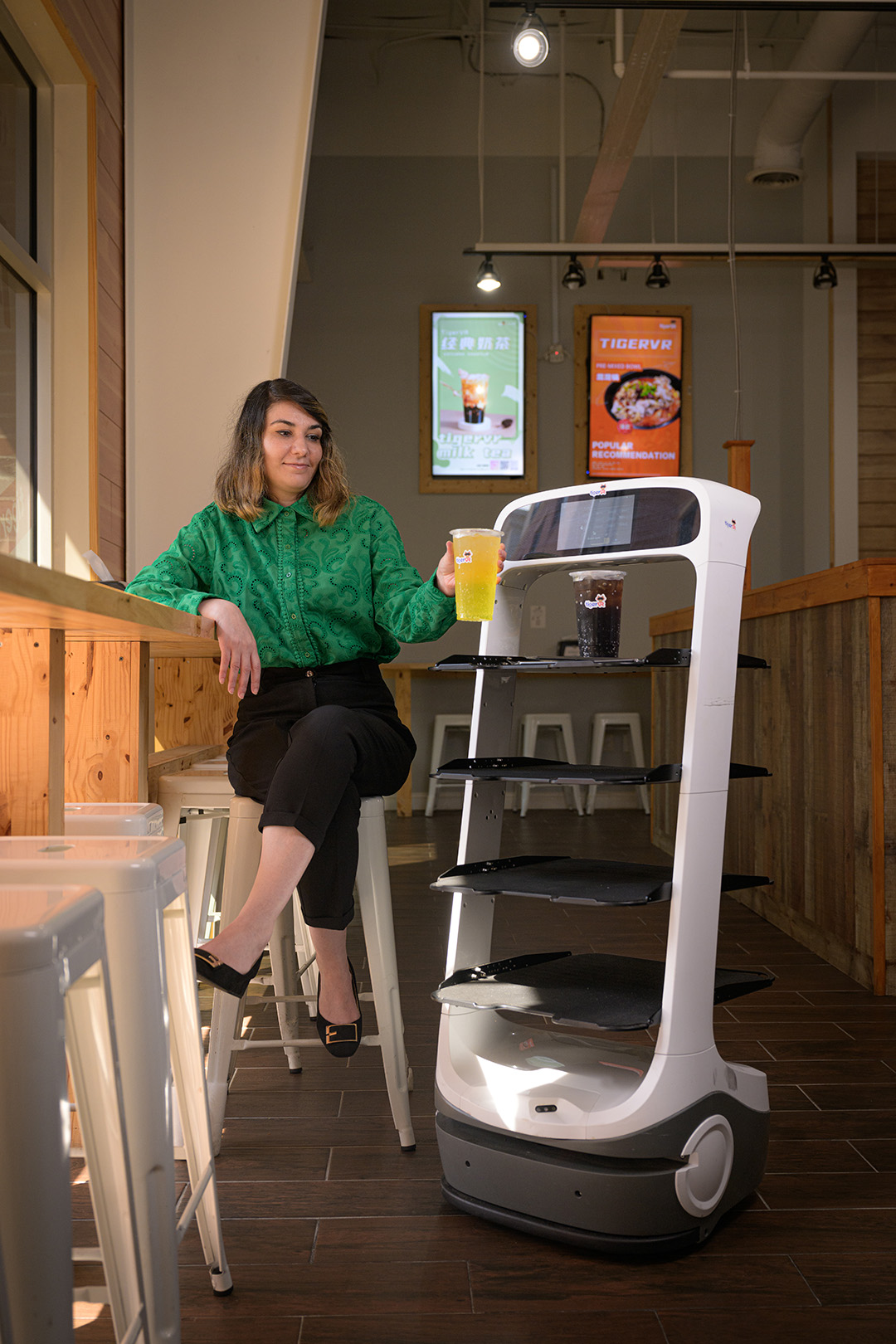
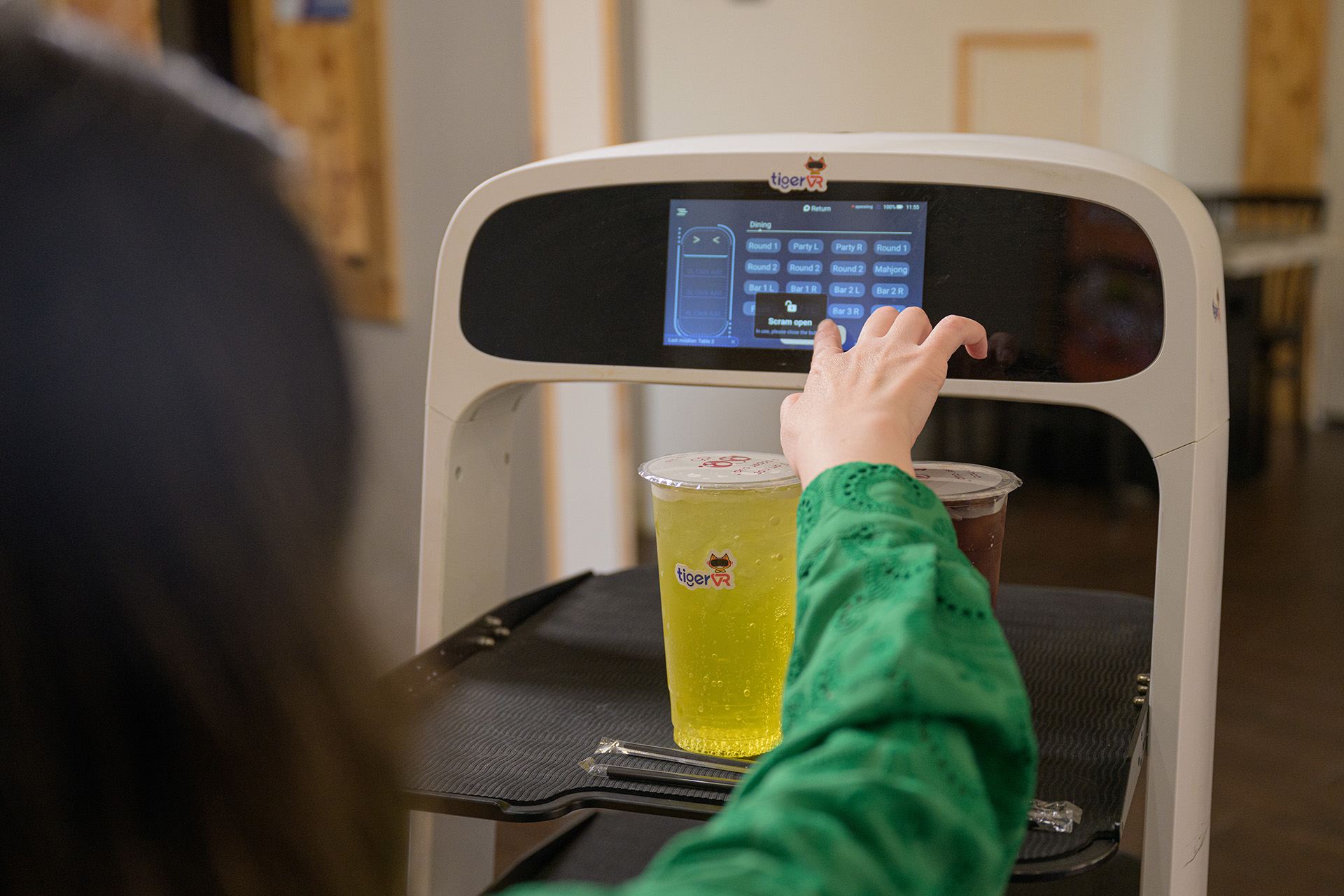
It’s exciting to Dozier to see all of the different types of AI research going on at Auburn.
“We want a lot of collaborative research,” he said. “It’s very important that we get the folks that are doing foundational AI research and those doing applied AI research to meet in the middle and work together, because we want to go after funding opportunities. A lot of money is out there. A lot of funding agencies are dumping a lot of money into AI, and we think that AI@AU is a place where we can have both types of researchers and educators come together and go after this funding.”
With that funding comes more advancement in AI, and with that advancement comes fear that robots will put people out of work and, in the case of ChatGPT, help students and others steal people’s work and call it their own. Already, people have used ChatGPT to pass law school bar exams and other tests, and comedian Sarah Silverman is among a group of writers suing Open AI, the makers of ChatGPT, for using their work to help churn out words without their permission and without compensating them.
These are all legitimate concerns, Dozier says, though he’s not worried about AI putting people out of work.
“There is some talk about people losing jobs to AI, but in a lot of ways, you’re going to need a human to work with AI,” Dozier said. “In that way, I think AI will enhance worker productivity, not replace it.”
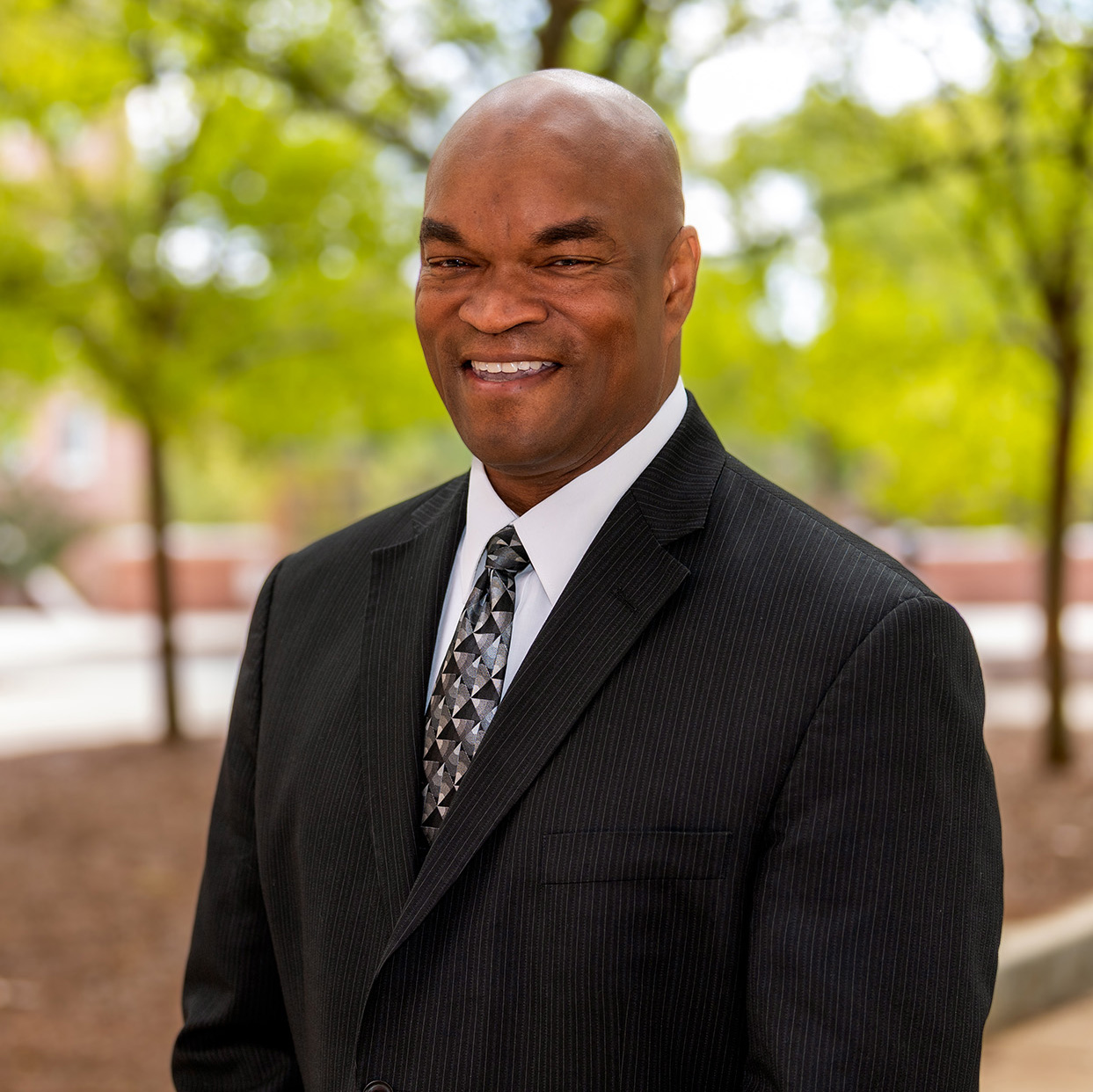
“I think AI will enhance worker productivity, not replace it.”
– Gerry Dozier
“I think where we’re headed is personalized LLM,” he said, referring to the large language models that are the foundation of generative AI like ChatGPT. “In other words, can I have my own little version of ChatGPT that’s trained on all of the things that I’ve written and all the emails that I’ve sent, so that it writes like I do and is better at responding to emails or writing documents in a way that I would write.”
Narayanan thinks that while AI research will continue to spawn advances, the next big steps in AI will be on the policy side with the establishment of regulations to ensure whatever AI technology is developed is used in the right way.
“That will include universities creating policy about what is allowable and not allowable, and regulations in education, in industry, in government and military,” he said. “That is going to be a big topic.”
Creating policies addressing AI should be an ongoing part of the AI process, Narayanan says.
“Guardrails definitely need to be put in place to prevent misuse of the technology,” he says. “If that is done, then it all can be a great benefit to humankind.”
The Future is Now
At Auburn, there is AI research going on all over campus

Brenda Ortiz
In the agriculture school, Professor Brenda Ortiz is among those using AI in “precision agriculture,” Dozier said. “You have a greenhouse, and you have a number of different control parameters that affect how things grow. Their work uses neural networks and deep learning to optimize that so that you get a better yield.”
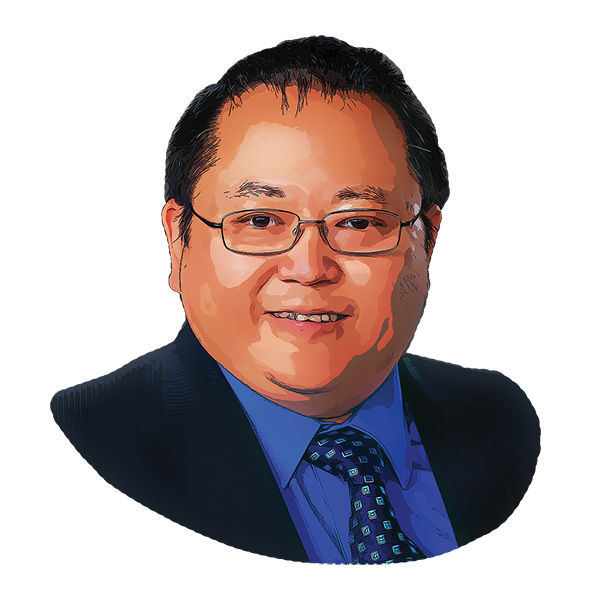
Jinyan Fan
Psychological Sciences ProfessorJinyan Fan, in research published in the Journal of Applied Psychology, found that AI chatbots can infer personality traits as well as or better than self-reporting of personality measures.

Atefeh Charmchian Langroudi
Atefeh Charmchian Langroudi, a student in hospitality management, is researching AI-powered robot chefs at U.S. restaurants, a postpandemic phenomenon that’s combatting staffing and personal contact issues.
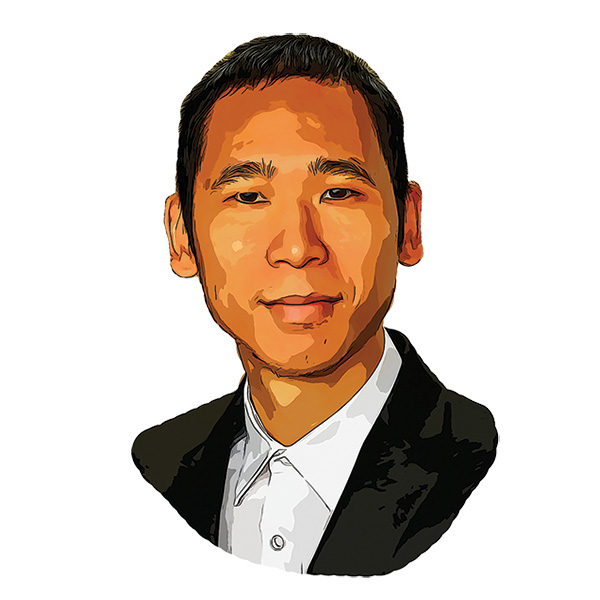
Anh Nguyen
In computer science and software engineering, Assistant Professor Anh Nguyen is studying computer vision, specifically for self-driving cars. “AI is used to process pictures in real time to see if there’s a pedestrian in front of the car or a sign that says Speed Limit 45,” Narayanan said. “He’s looking at ways these systems can fail and how to design systems that won’t fail.” Another assistant professor in the department, Santu Karmaker, has received $1.25 million in grants to, in part, create virtual teaching assistants that will help students better understand physics principles in the classroom.
That’s a Class? Six Unique Classes You Didn’t Know Auburn Offers
From safely shooting a gun to cooking an excellent meal, these unique and often overlooked classes in Auburn’s curriculum may surprise you.
What Do Students Carry In Their Backpack?
This ever-present functional accessory is more than a carrier of books, it’s also an expression of a student’s personality, lifestyle and even goals.
Alum and Military Veteran, Curtis Pippin, Answers the Call
Life isn’t easy in the military, but transitioning out can be even harder. Curtis Pippin ’17 helps veterans adjust to civilian life one connection at a time.
That’s a Class? Six Unique Classes You Didn’t Know Auburn Offers
From safely shooting a gun to cooking an excellent meal, these unique and often overlooked classes in Auburn’s curriculum may surprise you.
What Do Students Carry In Their Backpack?
This ever-present functional accessory is more than a carrier of books, it’s also an expression of a student’s personality, lifestyle and even goals.
Alum and Military Veteran, Curtis Pippin, Answers the Call
Life isn’t easy in the military, but transitioning out can be even harder. Curtis Pippin ’17 helps veterans adjust to civilian life one connection at a time.
